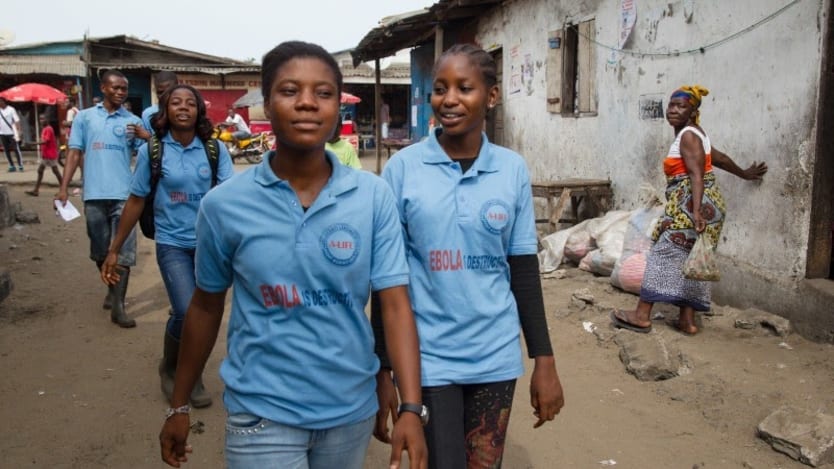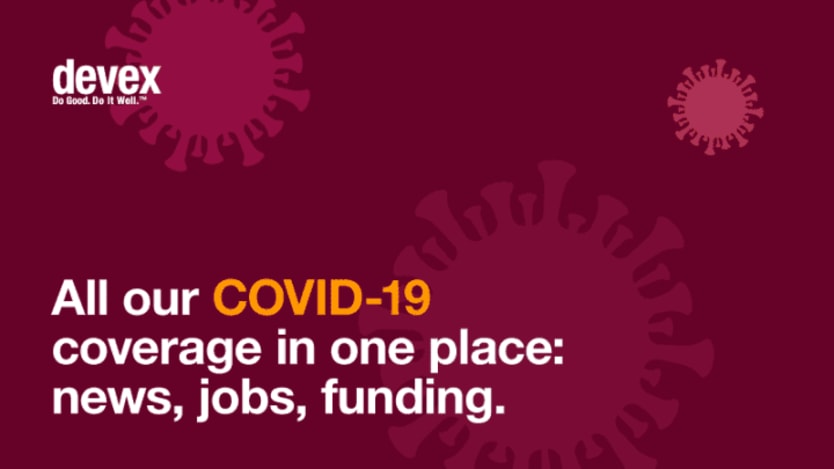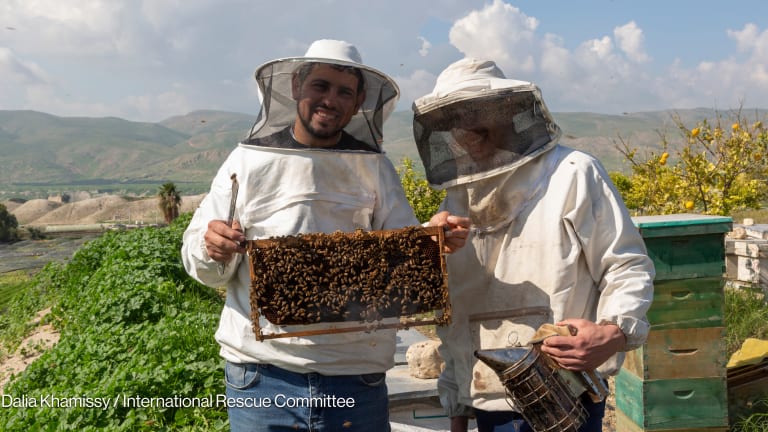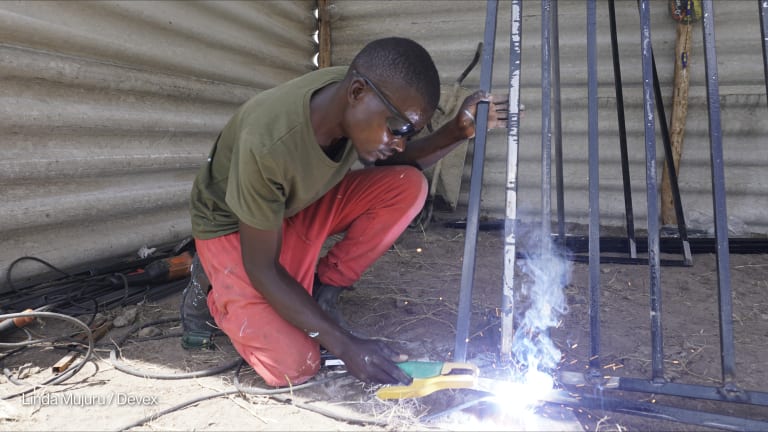
Lockdowns are easing in some countries as others brace for the accelerated spread of COVID-19. In Africa and beyond, we must not overlook a proven response to stop the coronavirus from doing its worst.
Young people can mobilize their communities and change behavior to help stop the spread. We know this because they have done it before. In the early stages of the worst Ebola outbreak in history, partnerships with young people and communities to shape the response were neither valued nor prioritized.
The community engagement lessons being used to fight COVID-19
Aid organizations dealt with rumors and aggression during the Ebola outbreak in the Democratic Republic of the Congo, but now the challenge is on a much larger scale.
Early efforts focused on top-down public health information, but broadcast messaging was not terribly effective. In Sierra Leone, a national assessment found that public awareness and knowledge of Ebola were high, but behavior was not changing in reflection of that knowledge.
Not only did this approach fail to create the change needed, but initial reliance on fear-based communication often led people to hide from authorities and avoid seeking medical care. At the same time, research found that communities were willing to change their behavior to stop the spread, providing that they were appropriately and continuously engaged.
Young people engaging communities
Young people offered themselves as the perfect partners to engage communities, volunteering to help in the thousands. Young volunteers mobilized with community health workers across every district of Sierra Leone, building trust and partnerships in communities to share lifesaving information and to trigger community action. Many volunteers lived in these communities already.
These young leaders, as part of the Social Mobilization Action Consortium, went on to engage 70% of communities across the country. Action plans to tackle Ebola were developed by 100% of communities, with 90% of them progressing toward or achieving those plans. Timely referrals of sick household members and adherence to safe burials increased, helping turn the tide on the spread of the disease.
While the coronavirus pandemic is different from the Ebola outbreak, the lessons are too important to ignore.
As with Ebola, COVID-19 requires not only a biological response but a social response. This social response must be delivered in partnership with young people. In Africa alone, people under the age of 35 make up three-quarters of the population. Young people can offer scale in the response, while at the same time ensuring it is localized and embedded in communities, not least because they typically make up the majority of most communities in the developing world.
‘Community navigators’
As during Ebola, young people can fill the role of “community navigators,” using text messaging, social media, phone calls, and socially distanced door-to-door outreach to share vital health messages that help people protect themselves from COVID-19.
Effective communication to help communities own and manage their response to the virus is crucial, too. Authorities and aid agencies have technical knowledge, but young people and their communities are the only experts in understanding the messages and communication channels that work for them.
One-way communication is tempting to deliver important public health messages at scale, but it must be complemented by working with young people who adapt messaging and tailor guidance to respond to different concerns, rumors, and changing contexts that communities experience.
At the same time, these communication partnerships can counter a parallel pandemic. The COVID-19 “infodemic” is spreading harmful misinformation about the virus, costing lives, wasting resources, and fueling prejudice and violence.
Ebola was denied at first. COVID-19 was called a hoax. We can train young people — Restless Development has already started — to root out misinformation, build a real-time picture of where and how it is spreading in communities, and respond to misinformation directly to stop it from spreading further.
Real-time insights
Community navigators also help build a picture of how the virus is spreading locally, which is crucial to any national and global response. Young people can record and report on how communities are planning and responding to the virus in real time. The insights that they gather help nongovernmental organizations, health agencies, and governments to understand how the virus spreads at the community level, to identify transmission hot spots and causes, and to support appropriate community response.
Many young people are already experienced navigators, trained and equipped from similar grassroots work such as collecting data on public services in Sierra Leone and gender-based violence in Tanzania.
There are countless examples of young people already leading local action on COVID-19. It is not too late to support them where needed, whether through funding, training, or partnerships. If anything, we must partner with the scale and power of youth, given the complexity and scale of not just the spread but also eventual reopening efforts.
Governments and NGOs must learn lessons from the past and back young people to lead local responses. Without them, curtailing the spread of the virus could prove impossible.
Visit our dedicated COVID-19 page for news, job opportunities, and funding insights.









